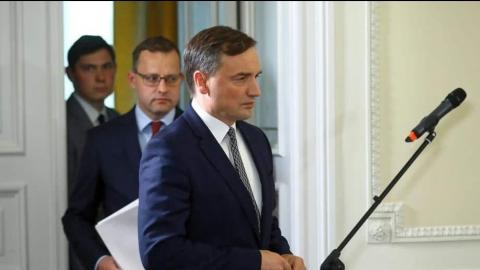Democracy Digest: Criminal Justice System the Focus in Poland and Slovakia

However, the prosecutors who were given just two days to relocate argue they were singled out because of their activity in "Lex Super Omnia" - a prosecutors' association which has been critical of PiS's justice reforms over the past five years.
Polish Ombudsman Adam Bodnar has asked for clarifications concerning the compulsory relocations, invoking the allegations raised by the targeted prosecutors that they have been singled out because of their activity in the association.
Meanwhile, Judge Igor Tuleya, who has become a symbol of resistance among judges and lawyers to the PiS justice reforms, was scheduled on Wednesday to be interrogated by prosecutors in Warsaw as a suspect in a case related to a ruling he made back in 2017, in which he faces up to three years in jail if found guilty. Tuleya did not show up at the prosecutor's office, but his supporters organised a protest in front of the building instead.
Tuleya argues that the entire case against him is politically motivated, as the Office of the Prosecutor General, run by hardline Justice Minister Zbigniew Ziobro, is out to silence critical voices. Further, Tuleya argues that the Disciplinary Chamber at the Polish Supreme Court, which last year lifted his immunity so he could be prosecuted, is an illegal body, as ruled by the Court of Justice of the European Union (CJEU) in 2019.
The case against Tuleya is at the centre of a battle between what critics term an "alternative" justice system built by PiS to defend its political interests (which includes a politically subservient Office of the Prosecutor General as well as new bodies, such as the Disciplinary Chamber, created and controlled by PiS), against independent judges, prosecutors and lawyers who are resisting...
- Log in to post comments
